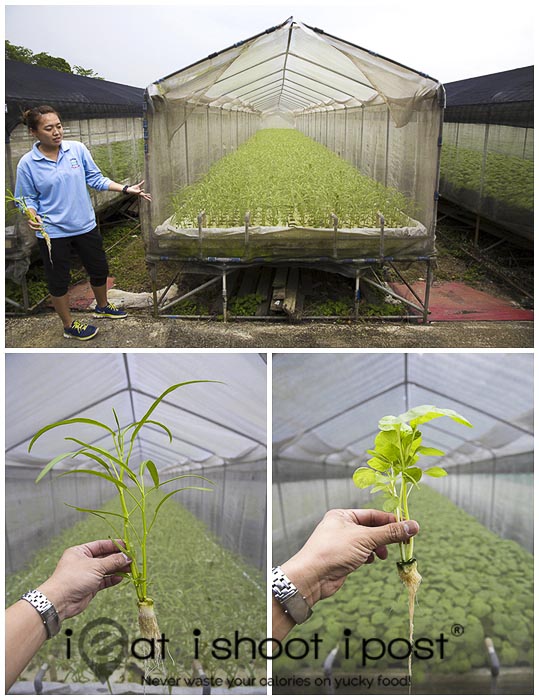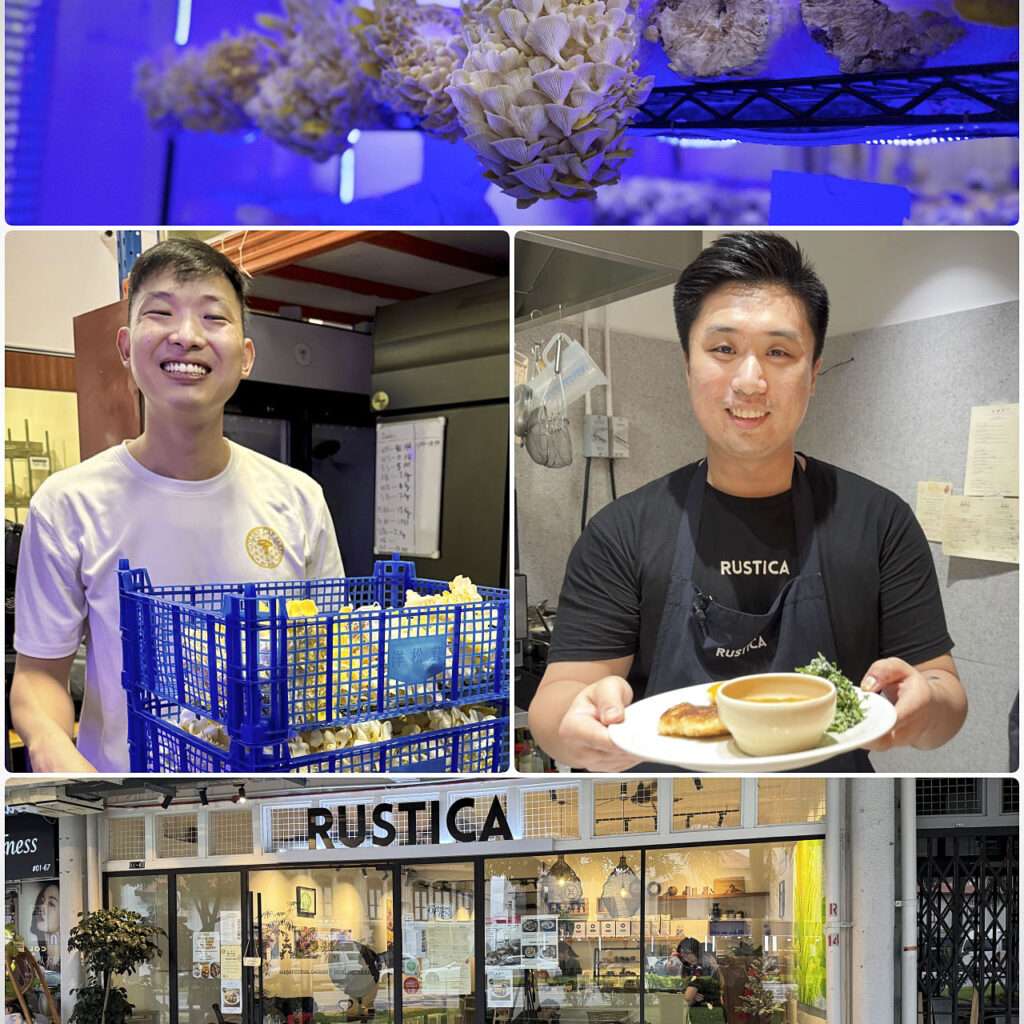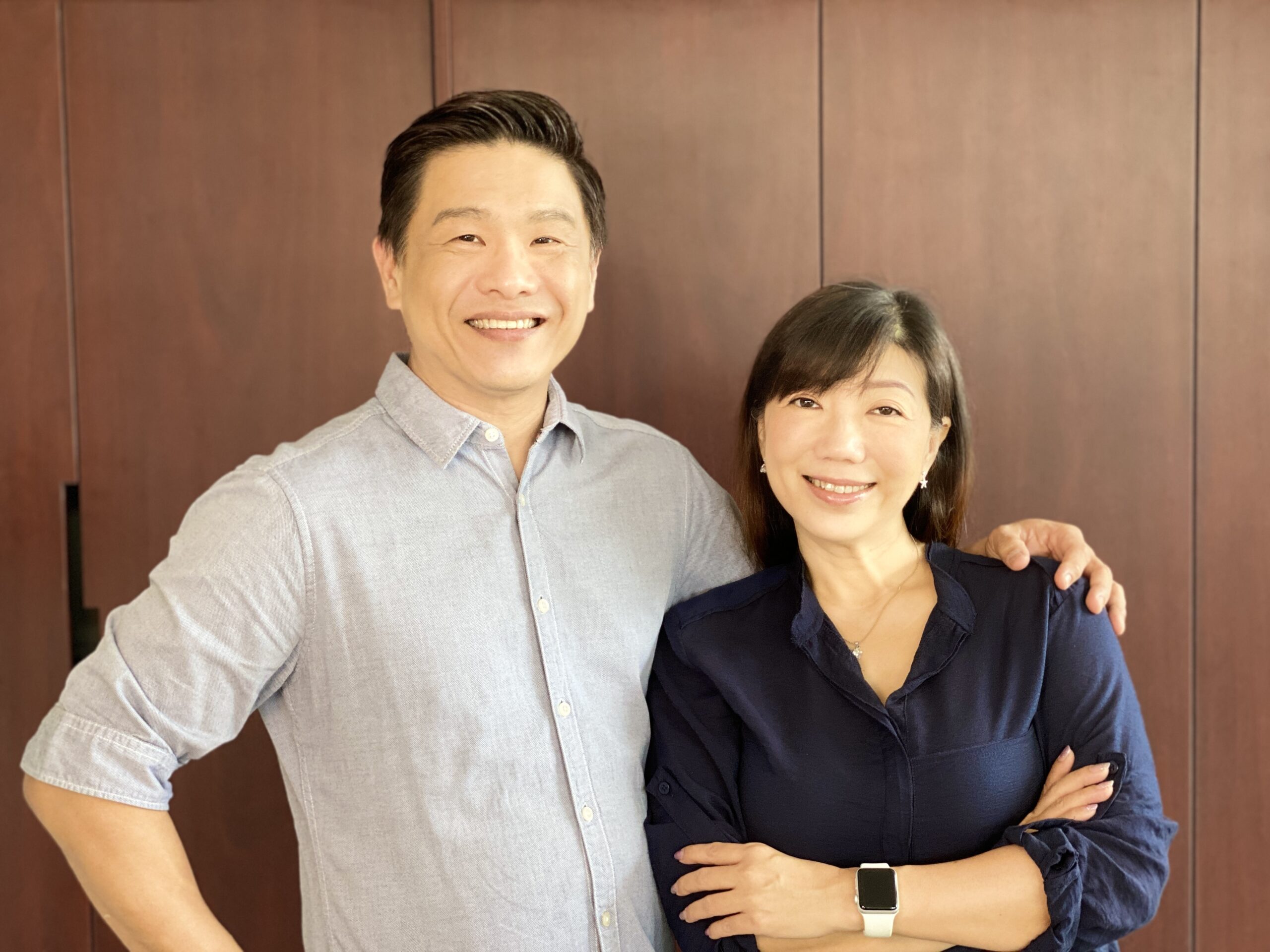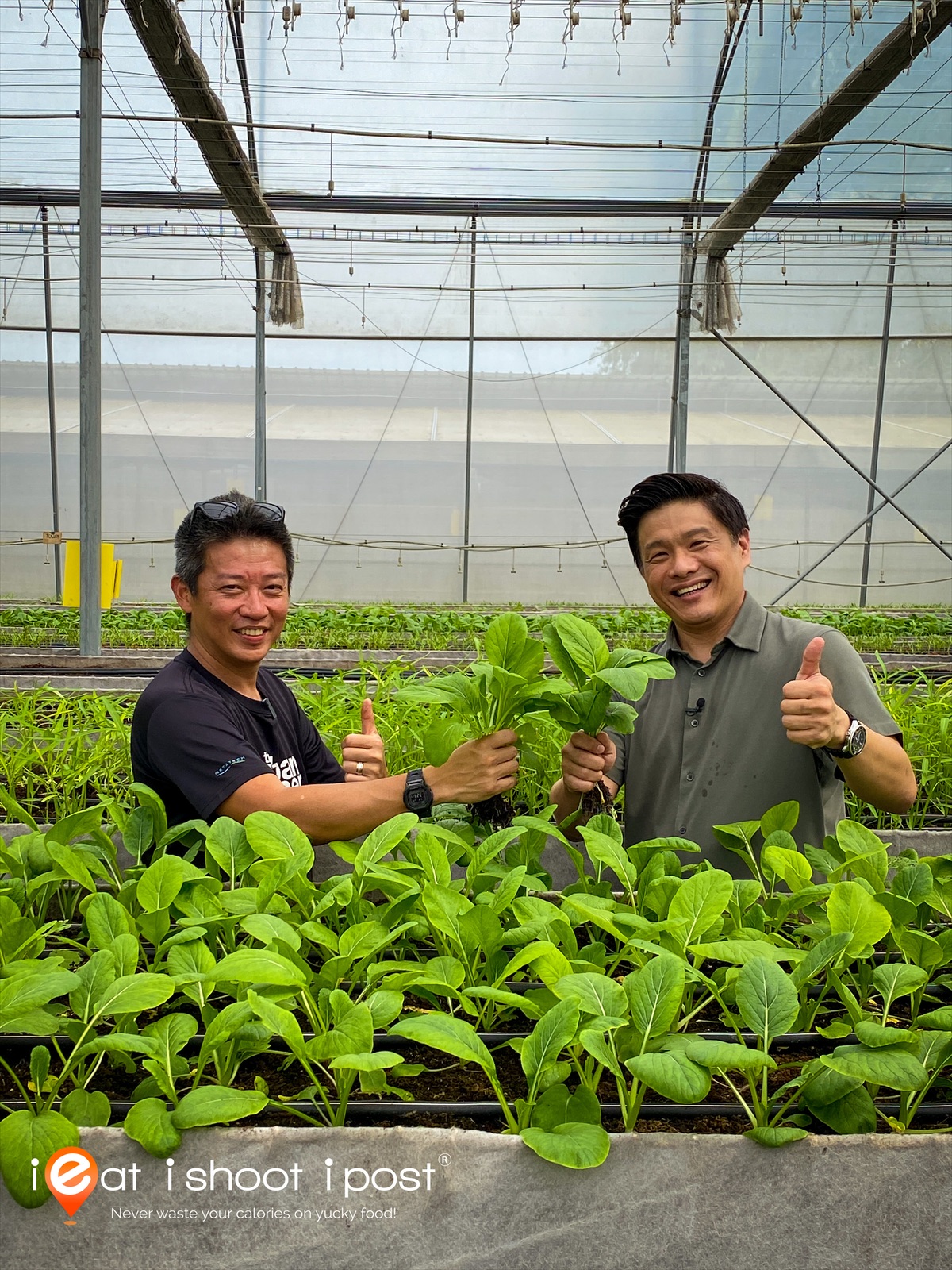 Growing veggies is hardly the type of thing that you’d expect an IT professional to get into but that is precisely what David Tan and Daniel Wong are doing at Red Dot Farm. By using the Internet of things (IoT), big data and other technologies, they are increasing the yield of everyday vegetables like Spinach, Kang Kong, Nai Bai, Cai Xin and other leafy greens to meet our local demand for fresh vegetables through RedMart.
Growing veggies is hardly the type of thing that you’d expect an IT professional to get into but that is precisely what David Tan and Daniel Wong are doing at Red Dot Farm. By using the Internet of things (IoT), big data and other technologies, they are increasing the yield of everyday vegetables like Spinach, Kang Kong, Nai Bai, Cai Xin and other leafy greens to meet our local demand for fresh vegetables through RedMart.
You are probably wondering how two IT professionals can turn into farmers?
Well, Red Dot Farm is a subsidiary of Netatech Engineering, a water solutions company that specializes in rainwater harvesting and is responsible for the self-sustaining water system of Gardens by the Bay and the vertical gardens of Park Royal Hotel on Pickering Road.
I am sure now you can see how the dots are starting to connect!
Inspired by the Garden of Eden
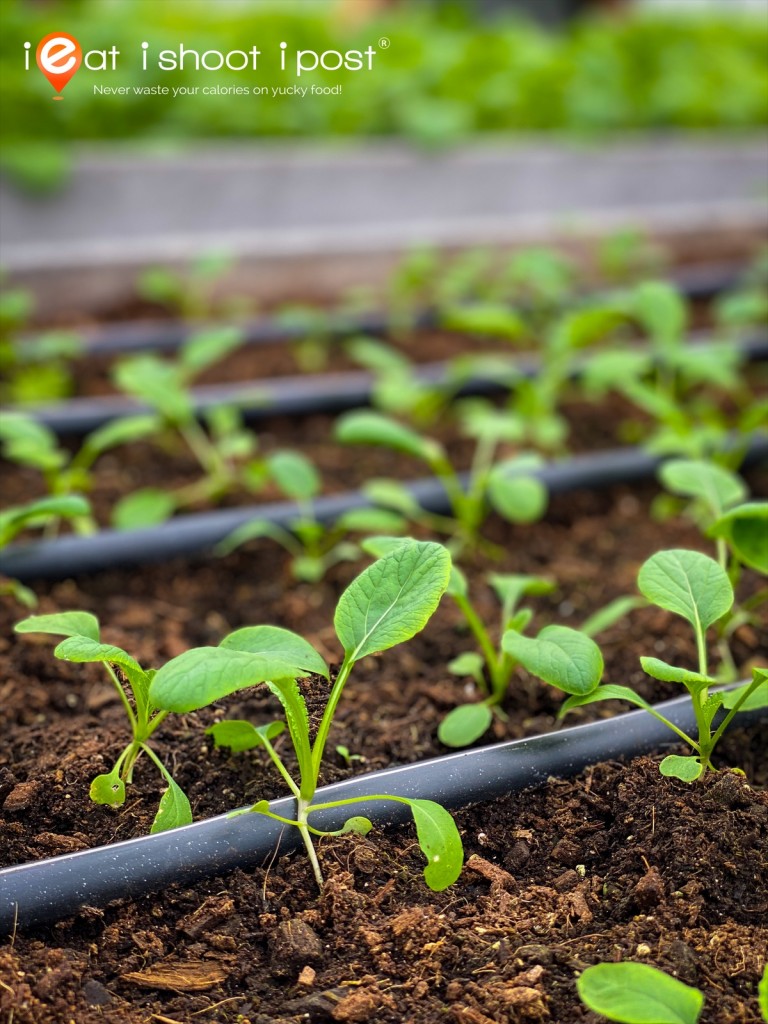
“and a mist was going up from the land and was watering the whole face of the ground” from the book of Genesis 2:6.
The idea of vegetable farming sprouted during one of David’s visits to Israel, he observed how the Israelis managed to turn the desert into farmland using precision drip irrigation technology invented by Netafim. This technology uses pressure compensated driplines to ensure every single seedling is given just the right amount of water. That not only ensures optimal growth but also reduces water wastage from overspraying and run-offs as well.
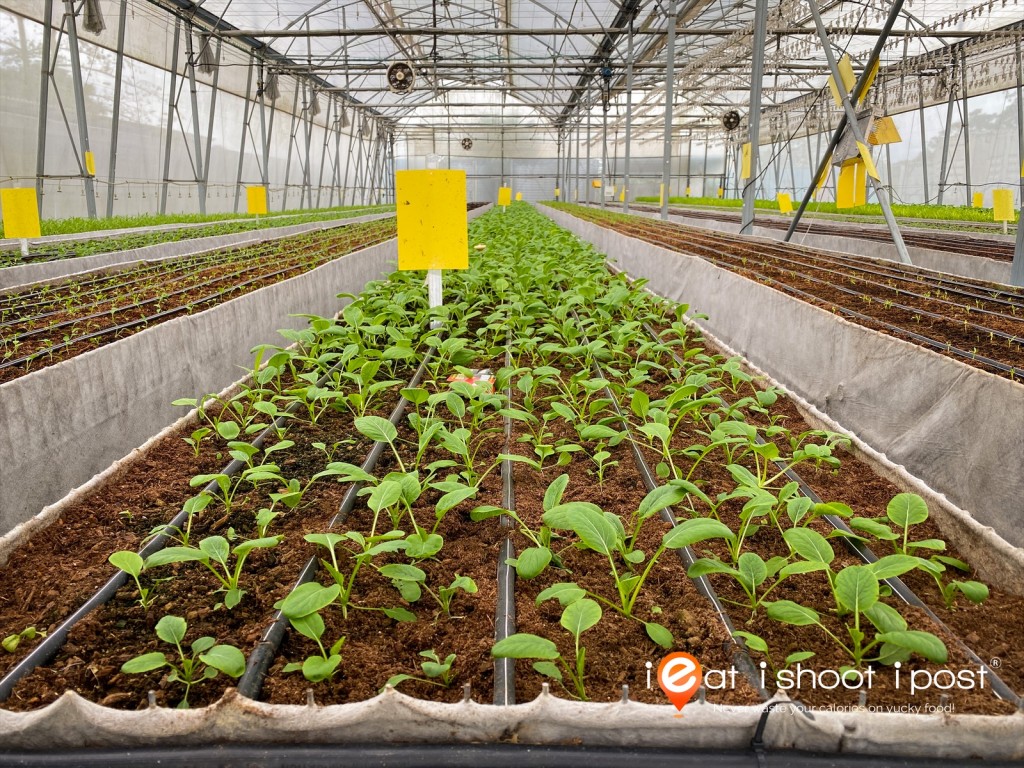
We were surprised to see that instead of being grown on the ground, the vegetables are grown on troughs about a metre high. This not only helps with the drainage, but also makes it easier for the farm hands to handle and harvest the vegetables!
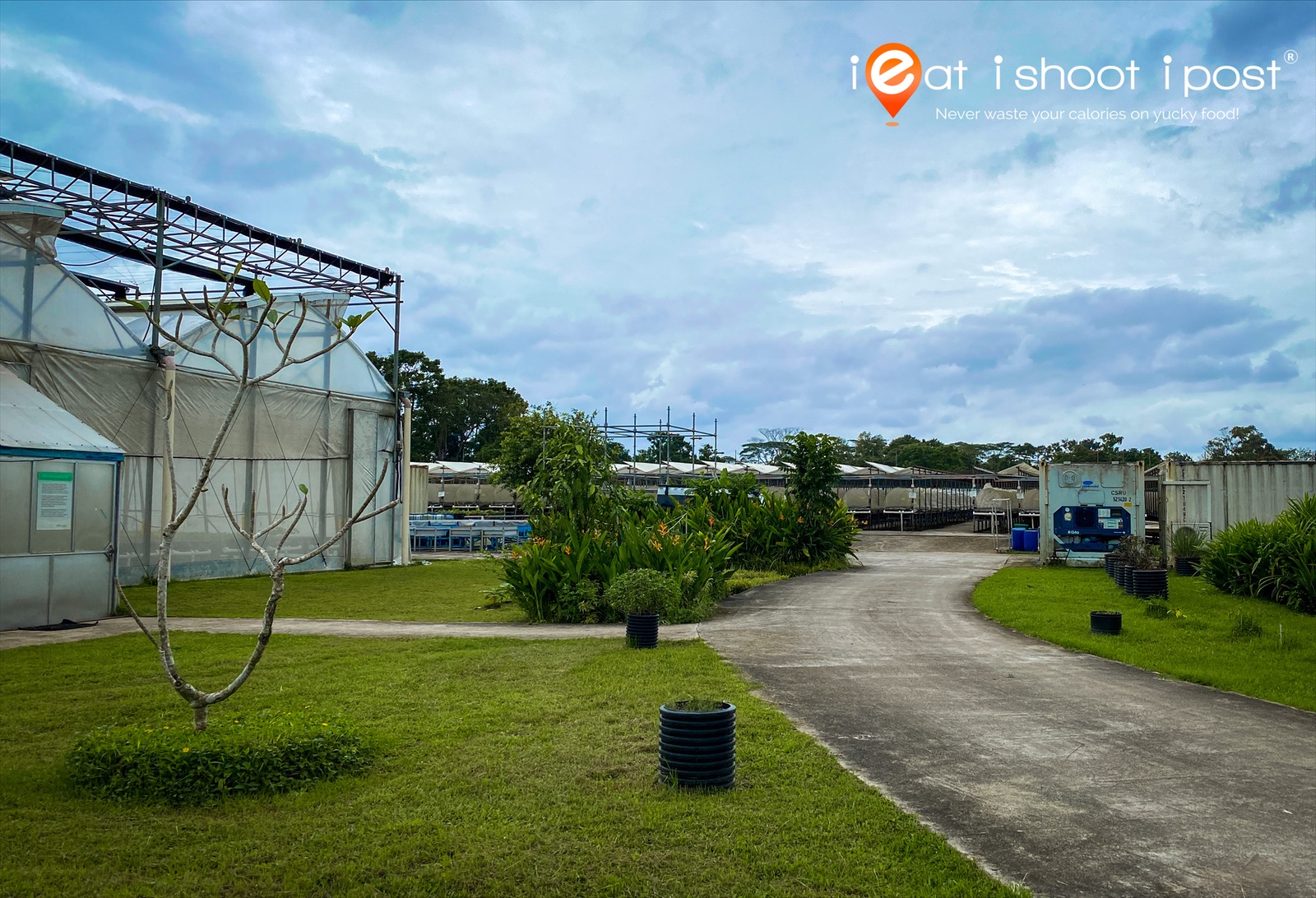
100% Pesticide-Free Veggies
We know of veggie farmers (outside of Singapore) who will not eat their own vegetables because they know the amount of pesticides being used to ensure their leafy crops are free of pests. This was a big concern of David from the start and so they made it a point to ensure that their farms are pesticide free.
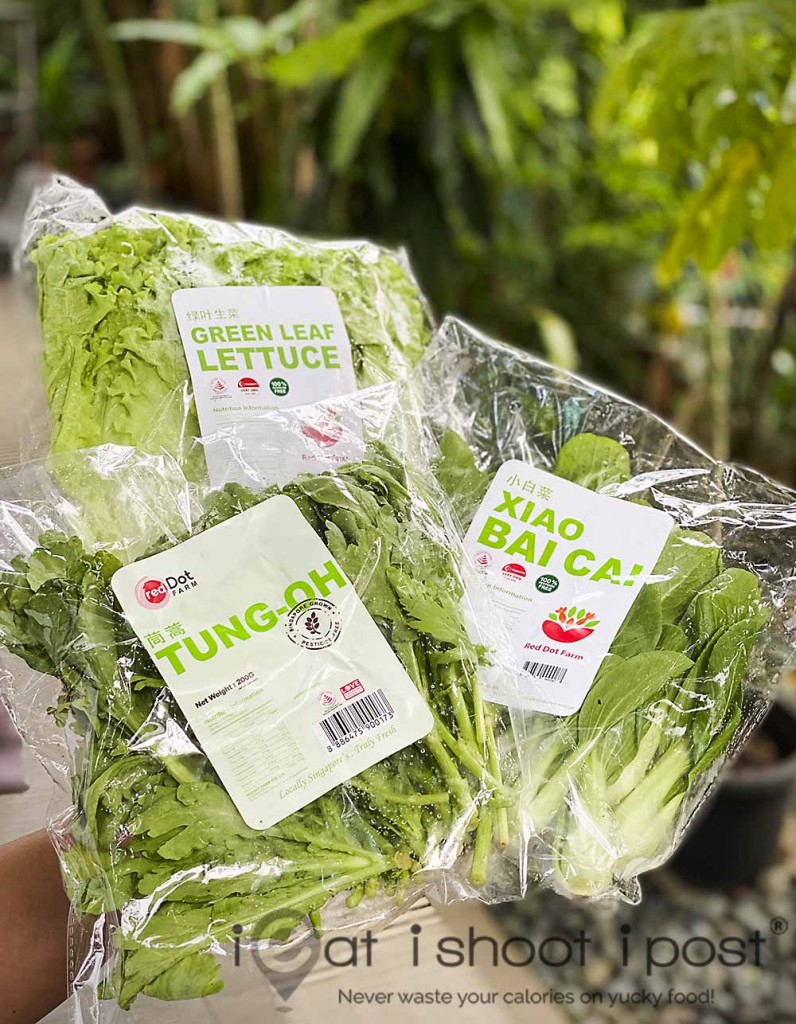
There are many ways to do this but the basic principle is to grow the vegetables in a greenhouse that is free from pests. Before each new crop the greenhouse is thoroughly cleaned with hydrogen peroxide. Then it is a matter of keeping pests out. To do this they have a fan at the double door entrance/exit to the greenhouse that blows away any insects whenever the door is opened. Secondly, through the use of technology, optimal temperature, sunlight and humidity are automatically adjusted to maintain optimal growth conditions for the plants and to prevent growth of mold and spores.
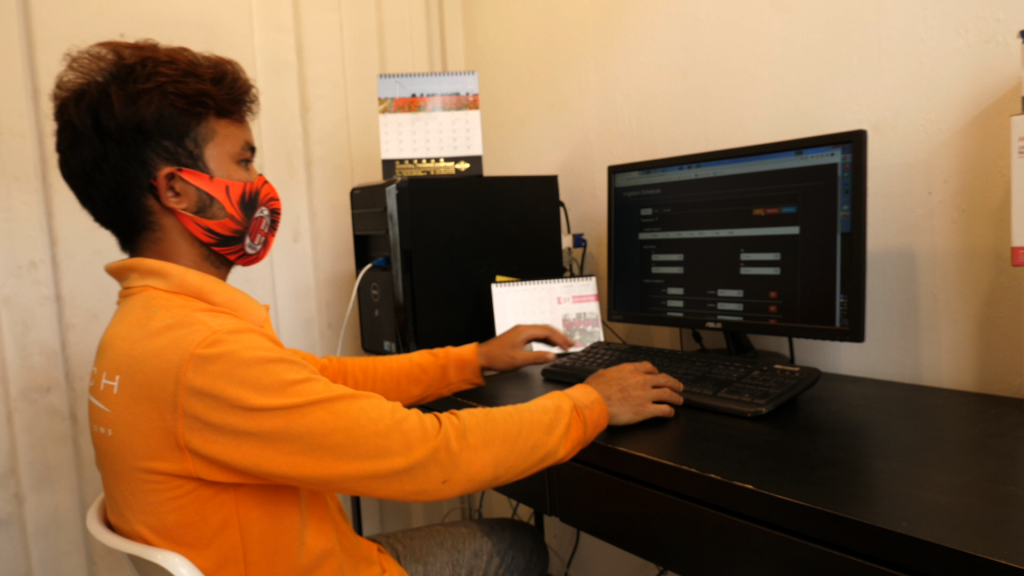
The Smart Farm – the plant is the customer
The job of an “urban farmer” at Red Dot farm is more like a pilot flying a plane than a traditional farmer. Seated in front of his “dashboard” computer, he is able to monitor the conditions of the greenhouse and remotely makes decisions to ensure optimal conditions for the plants.
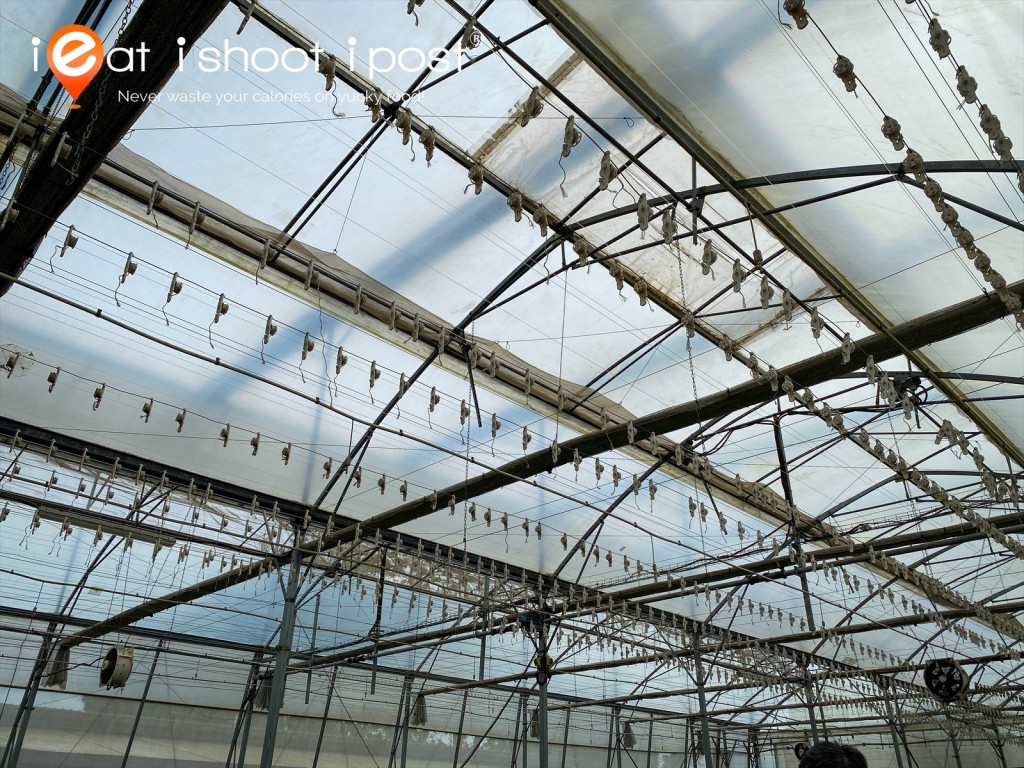
The sensors around the farm send soil moisture, air temperature, humidity and sunlight levels data to the cloud (IoT). This is then analysed by a program that will automatically control window shutter movement, water flow, etc based on pre-set trigger levels to adjust for changing weather conditions. The plants thus receive the optimal amount of sunlight, water and nutrients to thrive. By maintaining a controlled environment , the high tech greenhouse drastically reduces losses and ensures a constant predictable yield.
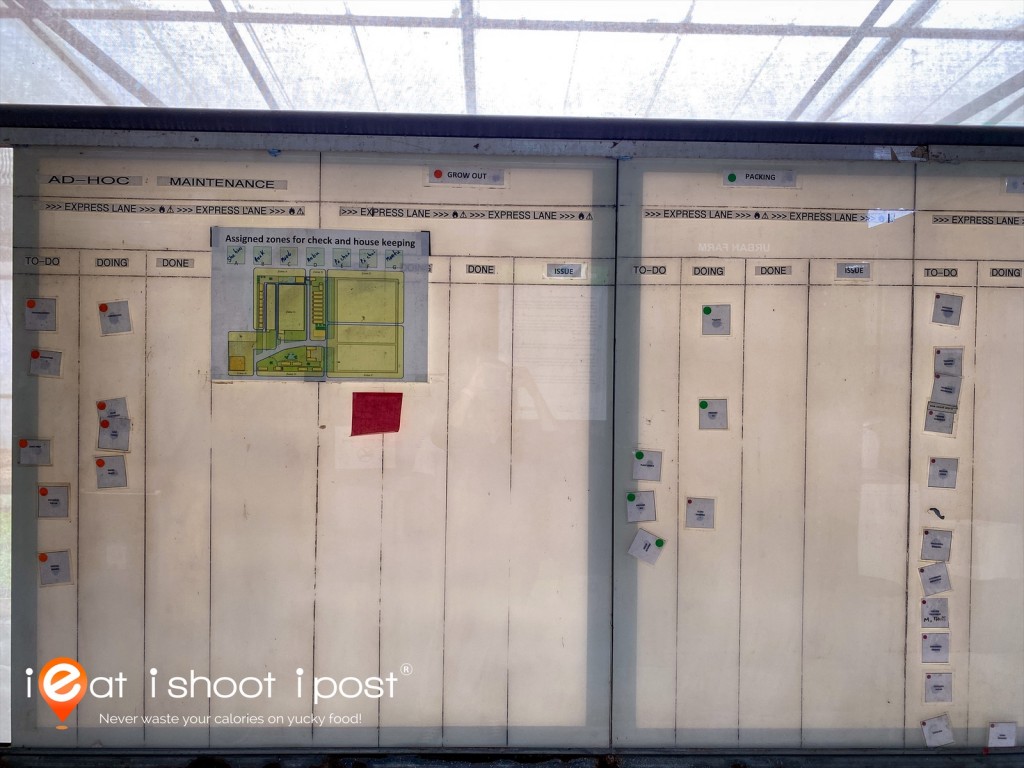
Freshness Guarantee with RedMart
This predictability means that Red Dot farms are able to give a 3 day freshness guarantee whenever you order their veggies from RedMart. What that means is you can be assured for at least 3 days of freshness before your veggies expires or you get a refund from RedMart. In fact, Daniel Wong – CTO of Red Dot Farm, quips that there are customers who claim that their veggies are still fresh even after 2 weeks in the fridge!
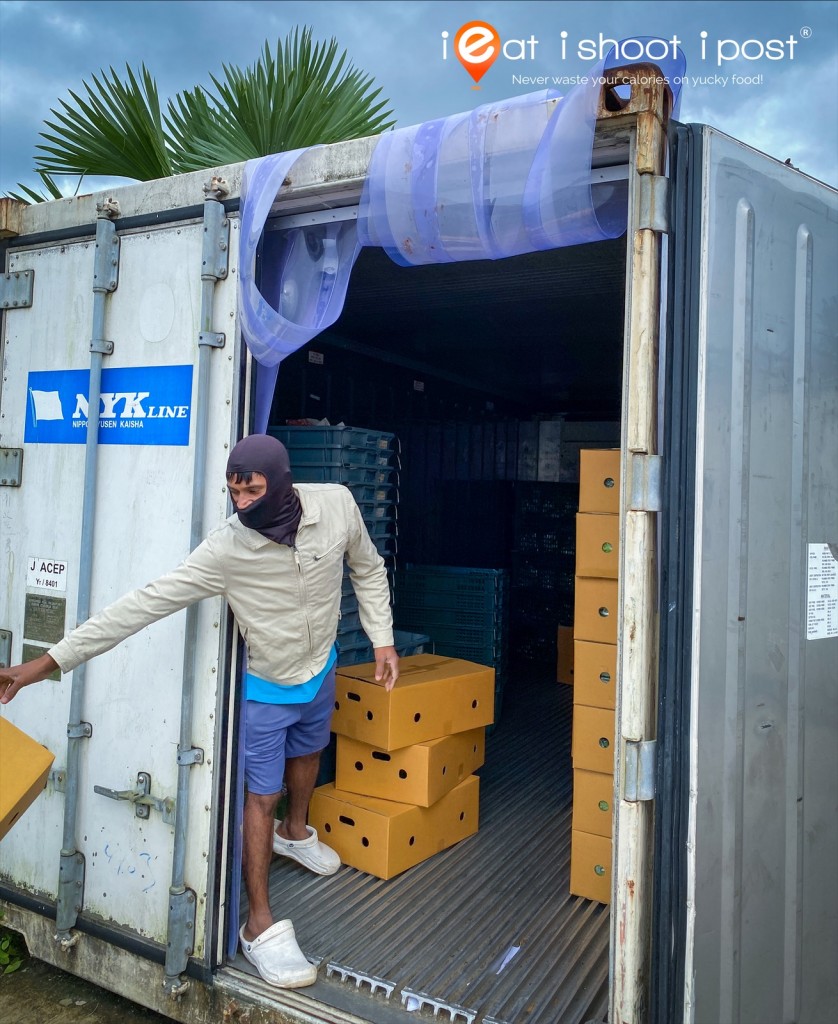
According to Daniel, their veggies are typically harvested, packed and delivered to RedMart warehouse on the same day. So, there is good chance that your evening delivery of Red Dot veggies from RedMart could have been harvested that morning itself!
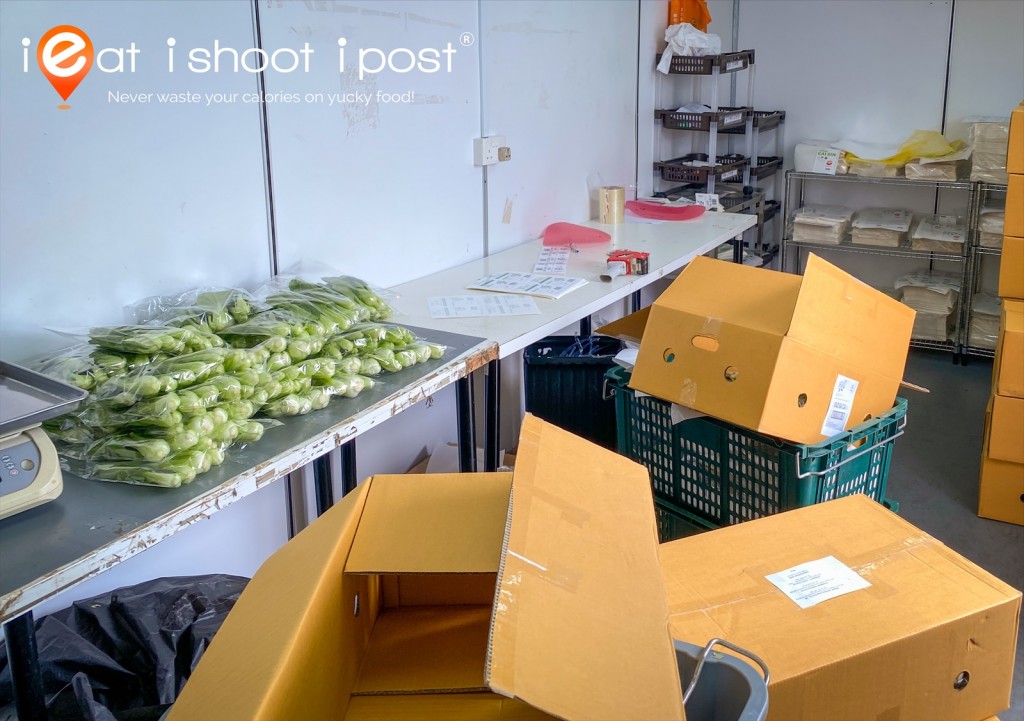
While at the farm, we couldn’t resist cooking up some freshly harvested Nai Bai with some chopped garlic and soy sauce. The greens were needless to say, crunchy and tasty.
Click here for Red Dot Farm vegetables on RedMart.
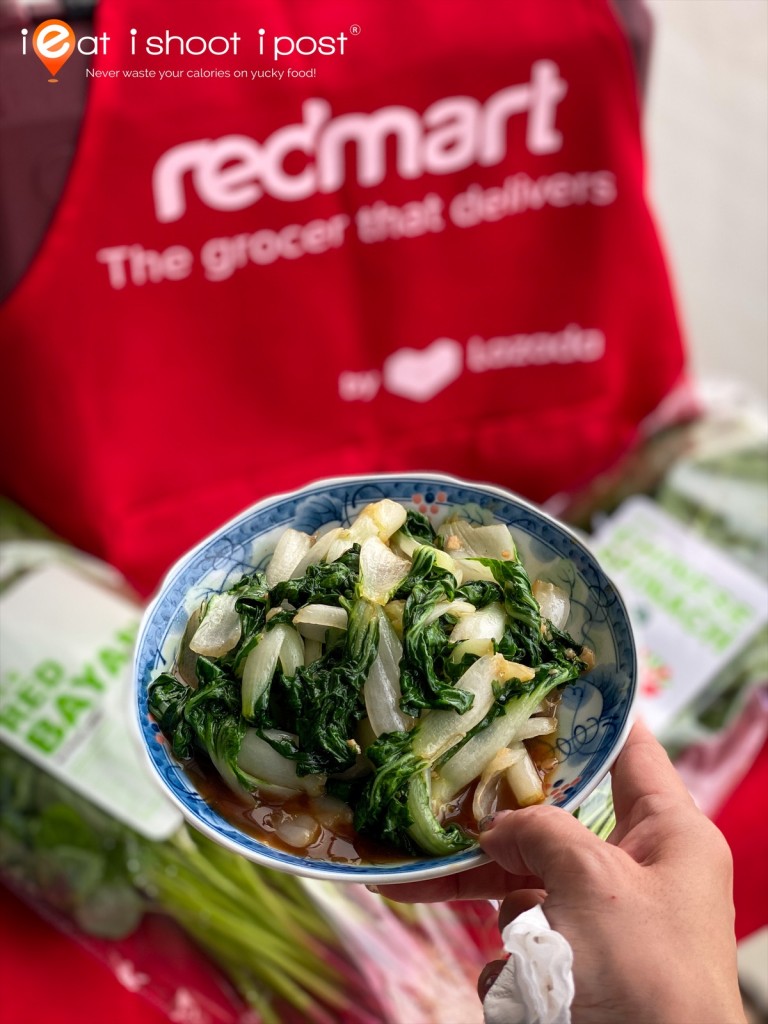
Going Glocal
While Red Dot Farm is clearly part of Singapore’s 30 by 30 vision of producing 30% of our food supply locally by 2030, they also own and operate a farm in Thailand that grows Tang Oh, lettuce and other vegetables that do better in colder climates.
The farm in Thailand is equipped with the same smart structures, sensors and cloud-based system which means they can remotely monitor and manage the farm from Singapore!
Farms in your HDB estate
Red Dot Farm’s vision is to bring farming to the heartlands with what they call ” Vertical Food Stage”. It is essentially a multi-tiered racking system that can be easily appended to unused vertical spaces like the facade of our HDB blocks where operators or even residents can rent or own a plot.
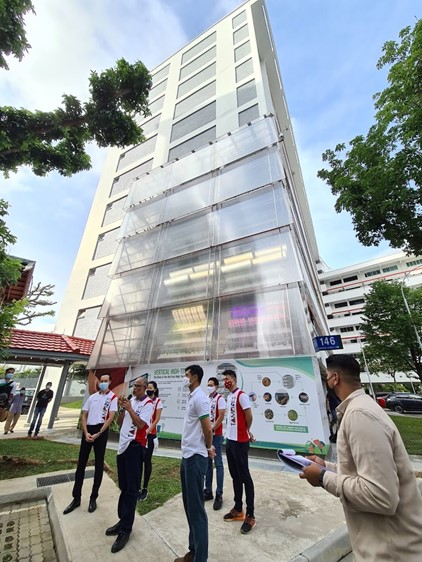
There is already a pilot project at block 146 Tampines Ave 5! Soon, you may even spot a vertical garden at a HDB block near you!
Conclusion
It is exciting to see how we will be able to grow more of our own vegetables in the future! The technologies that Red Dot Farm is spearheading will ensure that we can grow more of our own vegetables and reduce the the carbon footprint at the same time. Plus, being pesticide free, they are better for our health too!
Do check out other recipes using ingredients available on RedMart:
Tea-smoked Salmon recipe
Steak with Mushroom sauce
Crispy Chicken with Colonial Curry Sauce
Sweet and Sour Pork Recipe
Mapo Tofu Recipe
Also read about: RedMart supplier stories
BluCurrent – smart fish farm
Seng Choon Farm – egg farm
Disclosure: This post was written in partnership with RedMart




